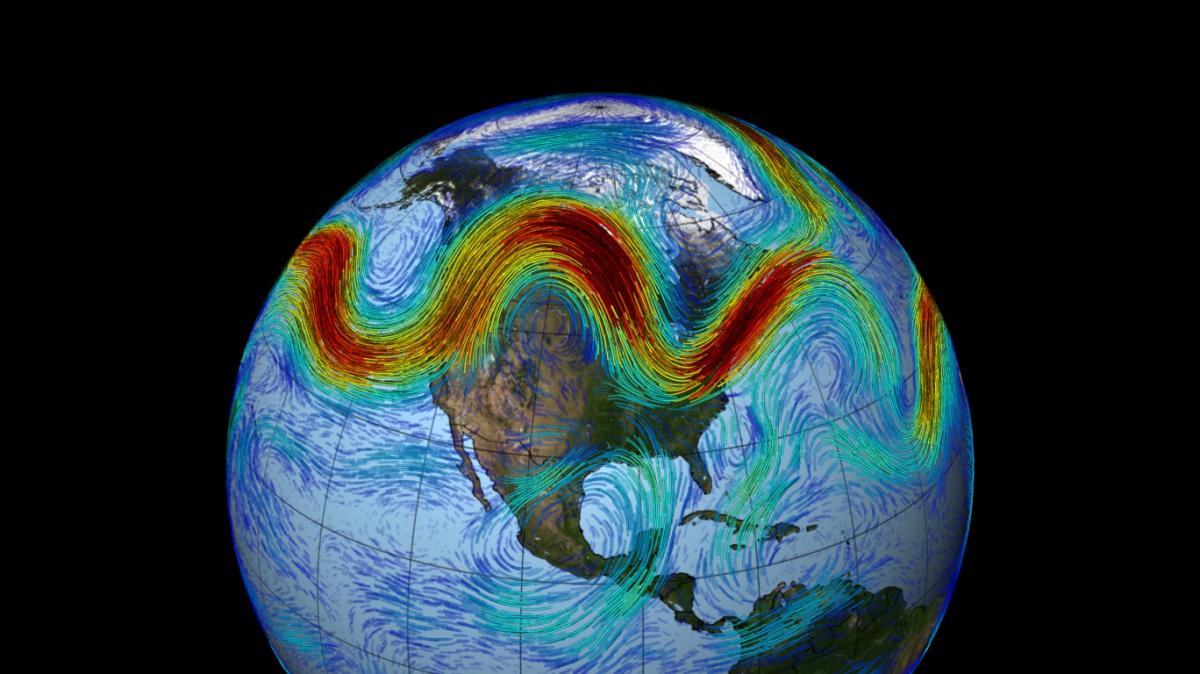Unexpected climate change Understand article
Reporting from the COP21 conference in Paris, we ask why ‘global warming’ can actually make the weather colder.
‘Global warming’ is a very misleading term because climate change may sometimes lead to colder temperatures in some parts of the globe, particularly in Europe and North America. Although it may sound counter-intuitive, climate change is not uniform and affects different regions in different ways.

travel at speeds greater than
160 km/h. Here, the fastest
winds are shown in red;
slower winds are blue.
Image courtesy of NASA’s
Goddard Space Flight Center
In the Arctic region for example, the increase in temperature due to climate change is, on average, three times more than in regions that are closer to the equator. A well-known consequence of that warming is that the Arctic ice is melting very rapidly, thus raising the levels of the oceans… but that is not the whole story.
A higher temperature combined with melted ice also means more evaporation and a more humid atmosphere. At high altitudes, the atmosphere around the North Pole is thus becoming more and more similar to that of temperate regions such as Europe and North America: warm and humid. This is having very important consequences on air currents, such as the polar jet streams, which play an important role for the planet’s climate.
The northern hemisphere polar jet stream typically forms a ring around the North Pole and separates the cold and dry air in the north from the warmer and humid air of the regions at a lower latitude. As these two masses of air become more and more similar, the air current is becoming weaker, but also less circular, bending in different ways and letting the cold northern air much further south than before. This can lead to more frequent intermittent cold weather episodes, with severe snowfalls, such as those that happened in Europe in January 2010.
So the melting of the ice on the North Pole doesn’t only lead to higher sea levels but also to less intuitive changes, such as more frequent cold episodes in Europe. Adapting to climate change may make unexpected demands of us…
Resources
- To learn more, see the latest Science in School articles on the topic:
- Knight S (2015) Planetary energy budget. Science in School 35: 12-15.
- Peyrot A (2015) Tara: an ocean odyssey. Science in School 35: 6-11
- as well as the rest of the series of Science in School articles about climate change, including how to model climate change, what the hole in the ozone layer is doing, and some climate-related experiments for school.
- Visit the NASA/Goddard Space Flight Center Scientific Visualization Studio’s website to watch a beautiful video of the polar jet stream in action.
- Find out more about the conference on the COP21 website.
